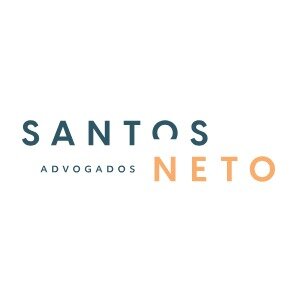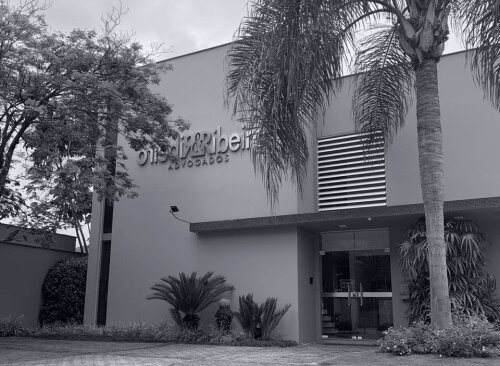Best Antitrust Litigation Lawyers in Brazil
Share your needs with us, get contacted by law firms.
Free. Takes 2 min.
Or refine your search by selecting a city:
List of the best lawyers in Brazil
About Antitrust Litigation Law in Brazil
Antitrust litigation in Brazil refers to legal actions involving violations of competition laws designed to protect and promote a fair and competitive market. The aim is to prevent anti-competitive practices such as cartels, abuse of dominant position, and restrictive business practices that could harm consumers and other businesses. The Brazilian competition framework is overseen by the Administrative Council for Economic Defense, known as CADE. Brazilian antitrust law applies to both domestic and international companies operating in the country. Enforcement includes both administrative proceedings by CADE and judicial litigation brought by competitors, consumers, individuals, or the public prosecutors.
Why You May Need a Lawyer
Navigating antitrust litigation can be complex due to the legal and economic analyses involved. You may require legal assistance in several situations:
- If your business is under investigation for alleged anti-competitive practices, such as price fixing or market sharing.
- If you believe a competitor is engaging in unlawful behavior that harms your company or restricts competition.
- When facing merger or acquisition proceedings that require approval from Brazilian authorities.
- If you have received a complaint, subpoena, or summons from CADE or other governmental bodies regarding competition issues.
- If you are seeking damages in civil court due to losses caused by others’ anti-competitive conduct.
- If you are a foreign company dealing with Brazilian subsidiaries or operations and need to comply with local antitrust regulations.
A qualified lawyer can help defend your interests, ensure compliance, and guide you through investigations, negotiations, and litigation.
Local Laws Overview
Antitrust regulation in Brazil is primarily governed by Law No. 12,529, of November 30, 2011-commonly referred to as the Brazilian Competition Law. Key aspects include:
- Enforcement Body: The Administrative Council for Economic Defense (CADE) is responsible for investigating and sanctioning anti-competitive conduct, as well as reviewing mergers and acquisitions.
- Prohibited Practices: These include cartels, bid-rigging, price fixing, market division, exclusive dealing, predatory pricing, refusal to deal, tying arrangements, and abuse of dominant position.
- Administrative and Judicial Proceedings: CADE can initiate administrative proceedings that may result in fines, orders to cease illegal conduct, and restrictions on business activity. In parallel, affected parties can pursue claims in civil court for compensation.
- Leniency Policy: Companies or individuals that collaborate with CADE by providing information on anti-competitive practices may benefit from leniency, such as reduced fines or immunity.
- Merger Control: Mergers, acquisitions, and joint ventures above certain thresholds must be notified to CADE for prior approval to assess their impact on market competition.
- Sanctions: Penalties for violations may include significant monetary fines, orders to undo transactions, and even personal liability for executives or managers involved in unlawful acts.
Frequently Asked Questions
What is the main authority responsible for antitrust enforcement in Brazil?
The Administrative Council for Economic Defense (CADE) is the leading authority for investigating and enforcing competition laws in Brazil.
What types of conduct are prohibited under Brazilian antitrust law?
Prohibited conduct includes cartels, price fixing, bid rigging, market allocation, tying sales, exclusive dealing, abuse of dominance, and other practices that restrict, distort, or harm competition.
Can individuals as well as companies be held liable for antitrust violations?
Yes, both legal entities (companies) and individuals such as executives, managers, or other responsible persons can face penalties for involvement in anti-competitive conduct.
How does the leniency program work in Brazil?
CADE offers a leniency program where the first party to come forward and cooperate in an antitrust investigation may receive immunity or a reduction of penalties, provided they help with evidence and cease their involvement in the offense.
What should I do if my company is notified of an antitrust investigation?
Consult an experienced antitrust lawyer immediately. Responding properly is critical to protect your rights and frame an effective defense or negotiation strategy.
Are mergers and acquisitions subject to antitrust review?
Yes, transactions meeting certain economic thresholds must be submitted to CADE for review and approval before completion to assess their impact on competition.
What are the main penalties for violating antitrust law in Brazil?
Penalties include hefty fines, orders to cease illegal conduct, requirements to undo business transactions, bans from public procurement, and personal sanctions against involved individuals.
Can I file a lawsuit against a competitor for anti-competitive behavior?
Yes, affected parties can seek damages in civil court for losses suffered due to antitrust violations and may use findings from CADE’s administrative proceedings as evidence.
How long do antitrust investigations usually take?
The duration varies depending on complexity, but cases can take from a few months to several years. Merger reviews typically have specific deadlines, while conduct investigations may be longer.
Is it mandatory to have a lawyer for antitrust cases in Brazil?
While not always legally required, legal representation is highly advisable due to the technical nature of competition law and the potential severity of sanctions.
Additional Resources
If you are seeking more information or support regarding antitrust litigation in Brazil, consider the following resources:
- Administrative Council for Economic Defense (CADE): The primary governmental body for competition defense, offering guidelines, case records, and policy updates.
- Public Prosecutor’s Office (Ministério Público Federal): Sometimes involved in antitrust litigation, especially regarding public interest or collective actions.
- Brazilian Bar Association (OAB): Can help you find specialized lawyers in antitrust and competition law.
- National Consumer Secretariat (SENACON): Provides information and support related to consumer rights when anti-competitive practices impact end consumers.
- Business and Trade Associations: Many offer guidance, updates on regulations, and sometimes legal assistance to members regarding compliance and enforcement actions.
Next Steps
If you believe you need legal assistance in an antitrust matter in Brazil, here are recommended steps:
- Document any information, notices, or evidence related to the suspected antitrust issue.
- Contact a lawyer specialized in competition and antitrust law as early as possible to discuss your case and formulate a strategy.
- Cooperate fully with your legal counsel, providing all relevant documentation and background information.
- Respond promptly to any official communication from CADE or other authorities.
- Evaluate your options, including settlement, negotiation, or formal litigation, in coordination with your lawyer.
- Stay informed about ongoing legal obligations to ensure compliance and reduce future risks.
Taking early and informed action with professional guidance can make a significant difference in the outcome of your case and help protect your rights, reputation, and business interests.
Lawzana helps you find the best lawyers and law firms in Brazil through a curated and pre-screened list of qualified legal professionals. Our platform offers rankings and detailed profiles of attorneys and law firms, allowing you to compare based on practice areas, including Antitrust Litigation, experience, and client feedback.
Each profile includes a description of the firm's areas of practice, client reviews, team members and partners, year of establishment, spoken languages, office locations, contact information, social media presence, and any published articles or resources. Most firms on our platform speak English and are experienced in both local and international legal matters.
Get a quote from top-rated law firms in Brazil — quickly, securely, and without unnecessary hassle.
Disclaimer:
The information provided on this page is for general informational purposes only and does not constitute legal advice. While we strive to ensure the accuracy and relevance of the content, legal information may change over time, and interpretations of the law can vary. You should always consult with a qualified legal professional for advice specific to your situation.
We disclaim all liability for actions taken or not taken based on the content of this page. If you believe any information is incorrect or outdated, please contact us, and we will review and update it where appropriate.
Browse antitrust litigation law firms by city in Brazil
Refine your search by selecting a city.















